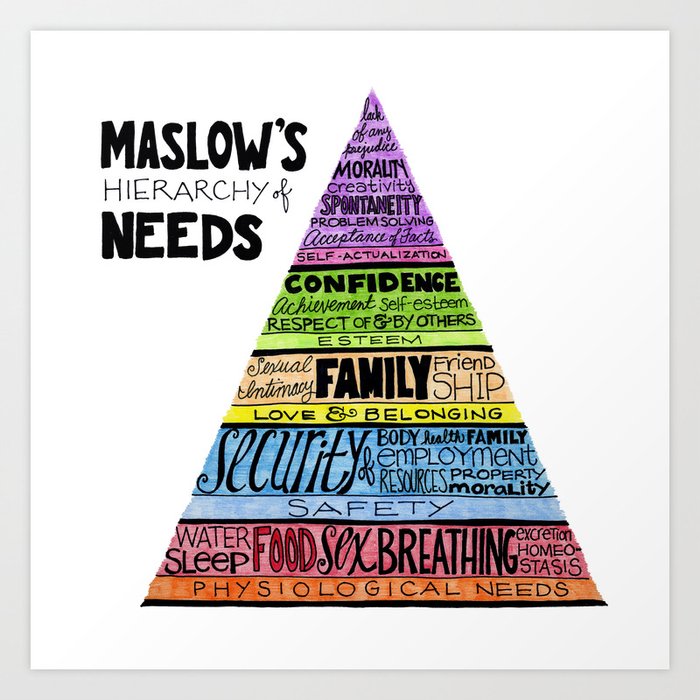This morning I woke up with a nice a cup of tea and some avocado on kalamata olive toast. It seemed extravagant after five days of sliced banana on basic wholemeal. And while I can't say my calorie count was dangerously low over this past week of Living Below the Line, I still seemed to be perpetually hungry (and there was the whole lack of coffee...). Not only that, but thoughts of my next meal filled most waking hours.
This isn't surprising. If your basic needs - food, water, shelter - aren't met, it's difficult to think of other more frivolous things. Abraham Maslow got at this idea in his 1943 paper, "A Theory of Human Motivation". Also referred to as "Maslow's Hierarchy of Needs", his theory outlines five levels of needs: physiological, safety, love & belonging, esteem, and self-actualization. Deficiency in a lower level of needs causes anxiety, and means an individual will prioritise fulfilling those needs first and foremost. "Where will I get my next meal" would supercede "how well am I doing at work" or "should I hang out with friends tonight". Chronic deficiency of these basic needs can ultimately hinder people from reaching their potential, and society as a whole from being more enlightened and just (see the "growth" tier: self-actualisation). And, as one can imagine, things like poverty and conflict can lead to perpetual loops in the bottom rungs of the hierarchy.
 |
| Cinner & Polnac (2004) on coral reef conservation |
This hierarchy also offers some insight if we care about the environment and conservation. Particularly in the early years, "fortress conservation" dominated the agenda. This largely entailed putting tracks of land - say, tropical rainforest - under protection, kicking out any people that lived in the area, and barring entry and use. Besides this being morally questionable, it also often fails to protect the area of interest. This isn't to say that we should get rid of all protected areas - save Yosemite! - but rather that the needs of people living around and reliant on protected areas must be considered. Studies have shown that socio-economic factors influence people's perceptions of conservation, and thus need to be accounted for to develop appropriate strategies. You can imagine that someone with an income too low to purchase food, but who lives near a forest with deer and other tasty critters, might prioritise his need to eat and feed a family over the value of an intact protected forest. Some of the strategies to address this tension have included buffer zones around protected areas, where local people can harvest non-timber products like honey or bamboo; and community-managed marine and forest areas, which allows people to use certain resources to meet their needs while fostering the motivation and capacity to sustainably manage them. These, too, don't always work out as planned, but they are steps toward more just and equitable conservation that address humanity's hierarchy of needs.
Thanks to all the support from friends and family during the week, and for contributing to the Oaktree Foundation's mission! It made all the difference (and contributed to the 'esteem' level of my needs).
Read More:
How just and just how? A systematic review of social equity in conservation research - Me, Liz Law, Nathan Bennett, Chris Ives, Jess Thorn, and Kerrie Wilson, 2018 (open access)
Bridging the gaps for global sustainable development: A quantitative analysis - Victor Udo and Peter Jansson, 2009 (paywall)
Nature above People: Rolston and "Fortress" Conservation in the South - Hanna Siurua, 2006 (limited access)
Poverty, perceptions and planning: why socioeconomics matter in the management of Mexican reefs - Josh Cinner and Richard Polnac, 2004 (paywall)

No comments:
Post a Comment